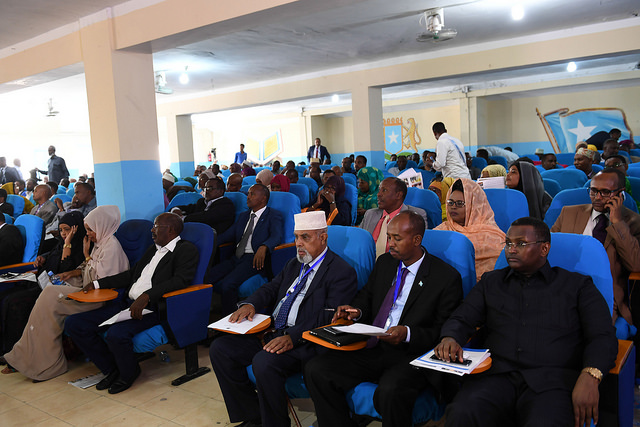Judiciary set for supremacy war as House ‘annuls’ Court ruling over election of 8 MPs

Decision by Parliament opens a battle ground of supremacy between the Legislature and the Judiciary.

Parliament has dismissed a Supreme Court ruling quashing the election of eight lawmakers to the 10th parliament opening a supremacy battle with the judiciary as the doctrine of separation of powers is put to test.
The Lower House passed a majority vote -180 to 4 in favour ‘annulment’ of the Supreme Court ruling May 16 this year which instructed the election for the eight seats be repeated affirming an earlier ruling by the Independent Dispute Resolution Mechanism.
Disqualification of members
The House sitting in Mogadishu Saturday cited section 59 of the Provisional Constitution noting none of the arguments raised by the Supreme Court met the threshold of the said article. Article 59 (1) on Disqualification of Membership of the Federal Parliament identifies five six circumstances under which a Member of Parliament can lose his/her seat.
The requirements include death, acceptance of resignation of a member, failure to attend two consecutive ordinary sessions without reasonable reasons. A member can also lose a seat if his/her citizenship rights are suspended in accordance to the law while failure by a member to consistently perform his her duties could also lead to disqualification from the House.
Article 106
The resolution by the Lower House to dismiss the court’s ruling could now open a battle with the Judiciary which asserts its independence through article 106 of the Constitution. Sub section 1 of the article reads thus: The judiciary is independent of the legislative and executive branches of government whilst fulfilling its judicial functions. Members of the judiciary shall be subject only to the law.
The Independent Dispute Resolution Mechanism which was created for the purposes of the 2016 elections ruled that the election of eight lawmakers- Abdullahi Mohamed Adan, Mohamed Said Abdullahi, Mohamed Ahmed Abdtidoon, Nadif Adan Isaaq, Muna Khalif Sheikh Abu, Abdiaziz, Salah Armaan, Sharmarke Garaad Saleebaan Buraale, Samra Ibrahim Omar failed the electoral threshold and ordered a re-election.
The Supreme Court upheld the ruling and ordered the electoral body to organize for a repeat of the elections.
Duly elected
The Lower House in its resolution Saturday noted it would not entertain any attempts at reconstructing part of its member through a re-election. It held that all the 275 members were duly elected and would serve as the substantive members of the 10th parliament until end of term in 2020.
Earlier, a section of elders drawn from regions whose seats were contested called for the implementation of the court ruling. Speaking in a press conference Friday, the eight elders said they were satisfied with the court ruling and that the responsible parties should ensure the ruling is effected.